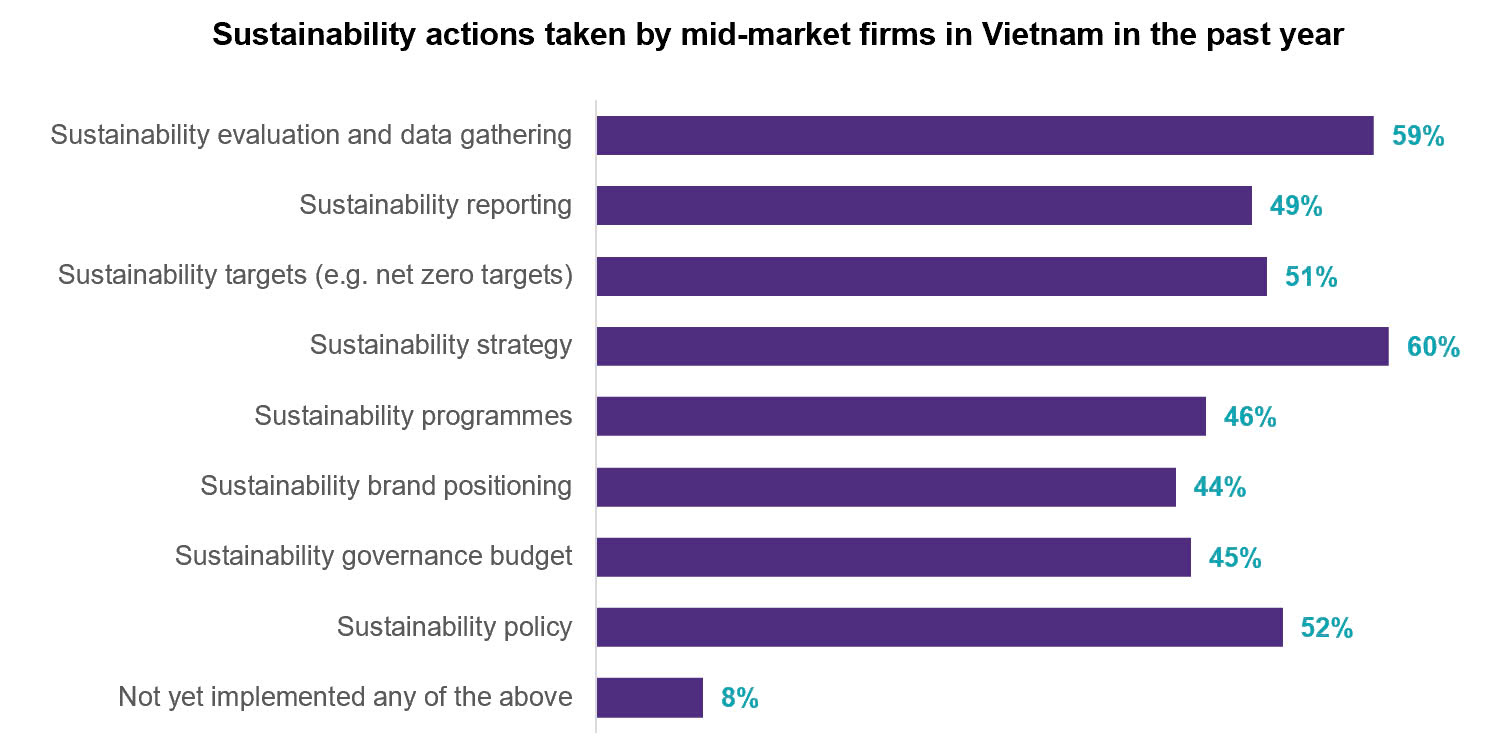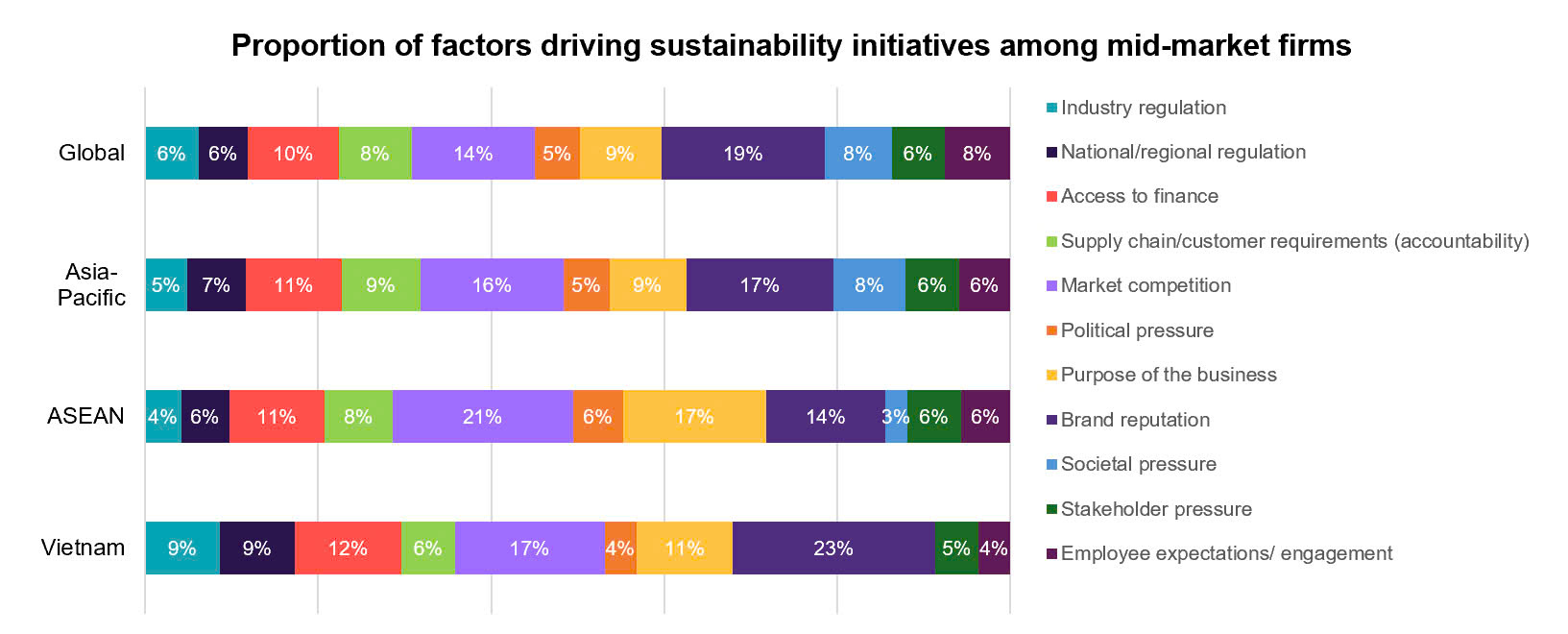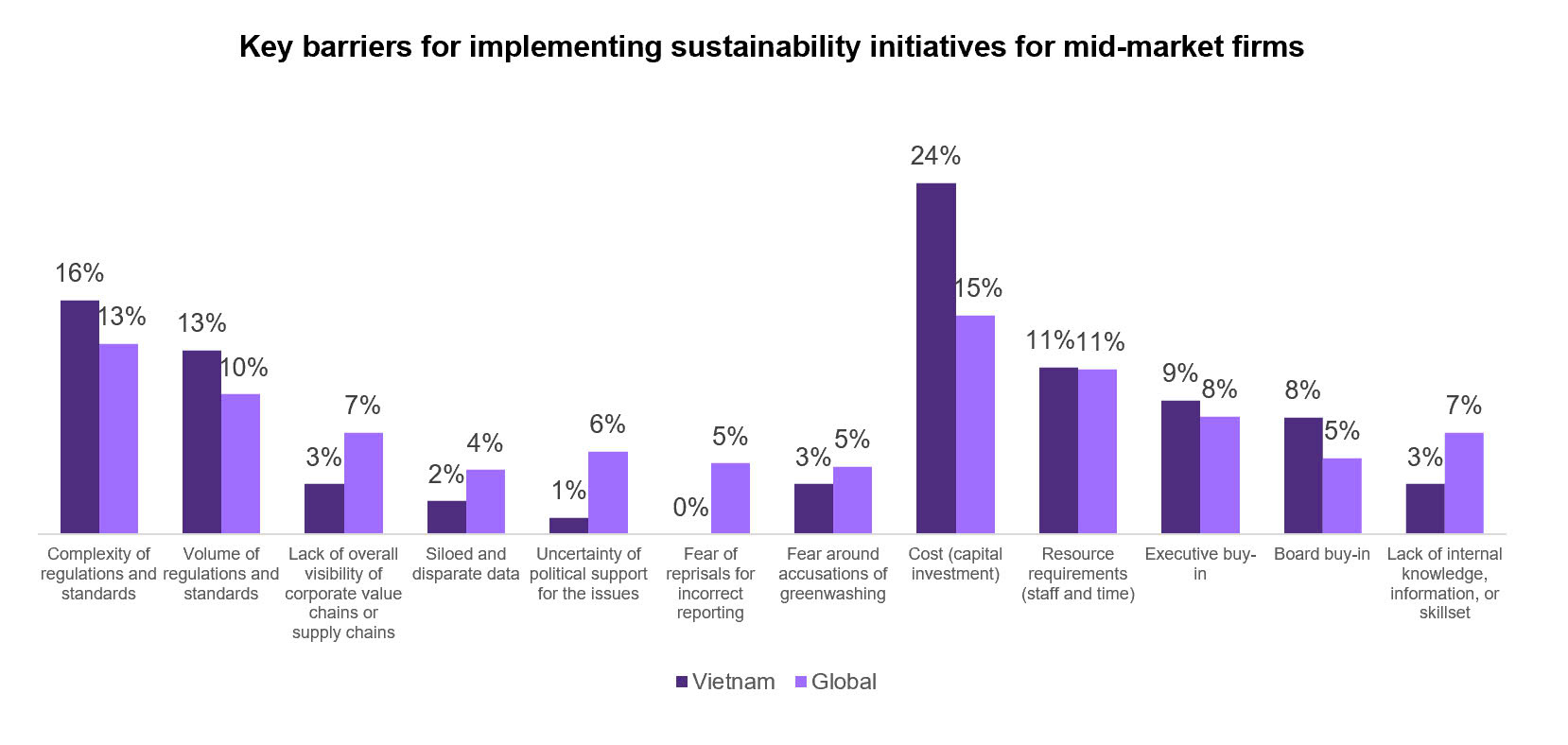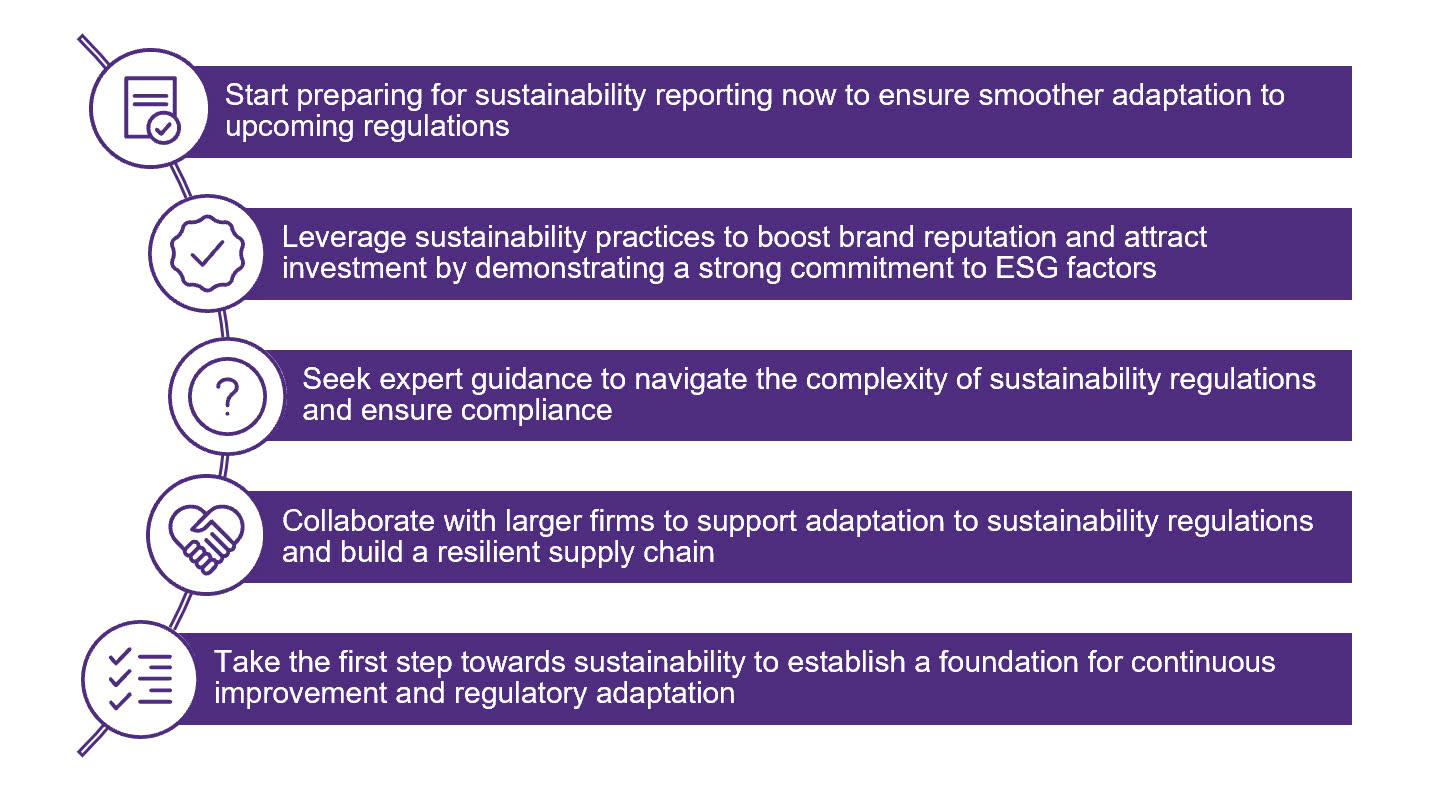The current progress and future plans
Grant Thornton International Business Report (IBR) survey found that, globally, 92% of mid-market businesses have undertaken at least one sustainability initiative in the past year, with 62% having completed three or more. In comparison, 80% of mid-market firms in Vietnam have implemented three or more sustainability initiatives, surpassing the figures for the Asia-Pacific region (64%) and ASEAN (68%). This demonstrates a stronger commitment to sustainable practices among firms in Vietnam.
Additionally, it was revealed that mid-market firms are particularly focused on enhancing their brand reputation by taking visible and engaging actions for customers and stakeholders rather than formal reporting on their sustainability progress and relevant metrics. According to the survey findings, mid-market firms globally are concentrating their sustainability efforts primarily on developing and implementing sustainability strategies (51%), followed by gathering relevant data (47%). Sustainability reporting comes in third (40%), indicating it is not the top priority. In Vietnam, the top priorities are developing and implementing a sustainability strategy (60%) and conducting sustainability evaluation and data gathering (59%). In contrast, reporting ranks fifth, with 49%.

Key factors driving sustainability initiatives
According to Grant Thornton International’s sustainability research, “brand reputation” has been identified as the key driver for sustainability initiatives globally (19%), motivating companies to invest in sustainable initiatives as they respond to shifting customer expectations and intensifying market competition. The next two most cited factors are “market competition” (14%) and “access to finance” (10%).
In Asia-Pacific, the most chosen option is also “brand reputation” (17%), followed by “market competition” (16%) and “access to finance (11%). Meanwhile, the top drivers for sustainability initiatives in ASEAN are “market competition” (21%), “purpose of the business (17%), and “brand reputation” (14%).
In Vietnam, the percentage recorded for “brand reputation” also takes the lead at 23%. “Market competition” and “access to finance” follow as the second and third drivers, with 17% and 12% of Vietnamese firms citing them respectively, which is aligned with global trends.

Key barriers in implementing sustainability initiatives
According to IBR data, globally, the mid-market identifies four key barriers to successfully developing sustainability initiatives: cost (15%), complexity of regulations and standards (13%), resource requirements (11%), and the volume of regulations and standards (10%).
For Vietnamese businesses, the journey toward sustainability faces similar but more pronounced challenges. “Cost” is the most significant barrier, with 24% of mid-market firms citing it, compared to 15% globally, indicating the significant financial strain of implementing ESG initiatives in Vietnam. “Complexity of regulations and standards” is another major challenge, selected by 16% of firms in Vietnam compared to 13% globally.

Conclusions and Recommendations
Through the survey, Grant Thornton provides a comprehensive view of sustainability efforts among mid-market businesses and highlights the importance of immediate actions toward sustainability initiatives.
For economies to flourish and societies to progress sustainably, the mid-market is a driving force. Businesses must take decisive actions toward sustainability to unlock internal growth and contribute to a sustainable future for the whole society. Accordingly, Grant Thornton recommends the following actions to motivate mid-market businesses, including those in Vietnam, to promptly integrate sustainability into their core business strategies:

Through these suggestions, we hope that businesses can effectively embrace sustainability, driving long-term value while contributing to a more sustainable future.
